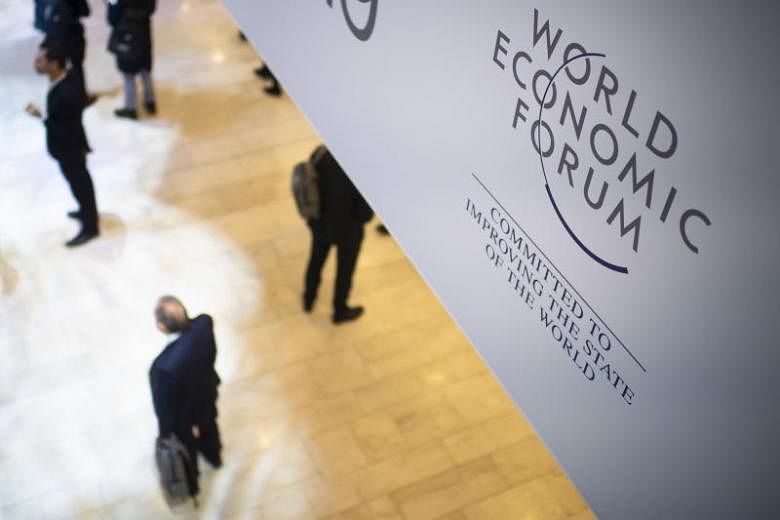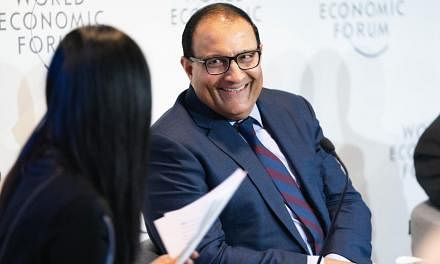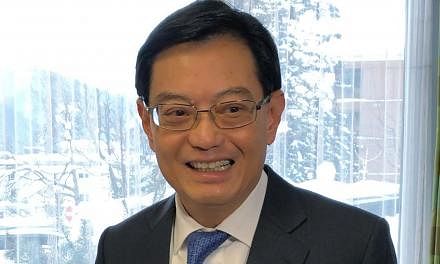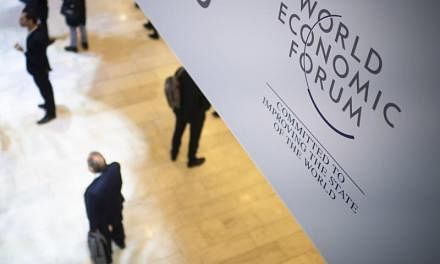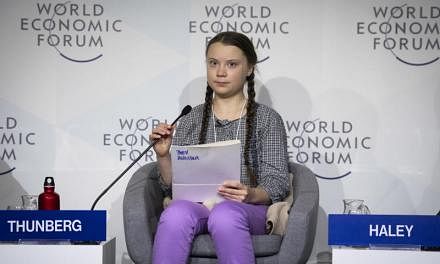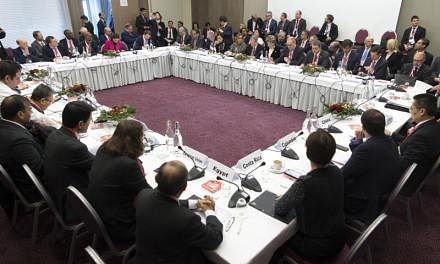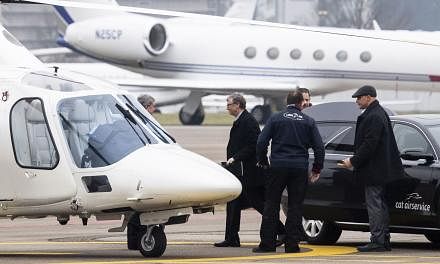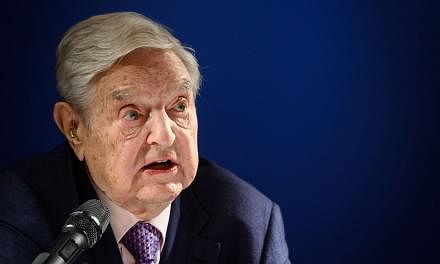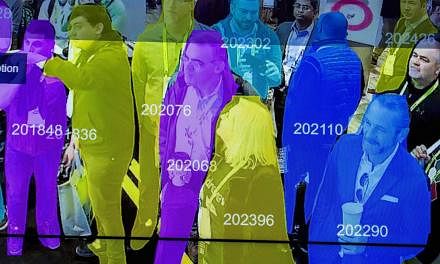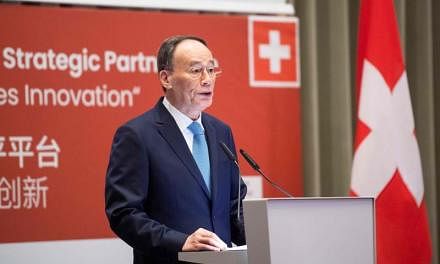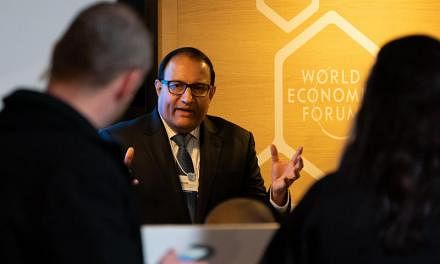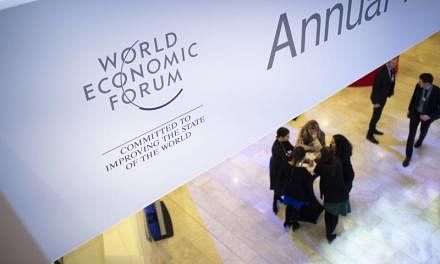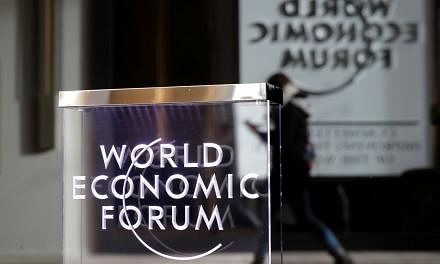DAVOS (BLOOMBERG) - The global economy is not on the brink of going bust, yet the risks are mounting and politics is the big threat.
That was the bottom line of a week spent among policymakers, investors and corporate executives at the World Economic Forum's annual meeting in Davos, Switzerland.
"There's always a lot of winds, but it seems to be more than average," said JPMorgan Chase chief executive officer Jamie Dimon. According to Rob Shuter, CEO of wireless carrier MTN, "people are subdued. The world is very unstable at the moment and there is no consensus on how the things affecting sentiment will play out."
Here are the headlines as the global elite leave the Alps:
SLOWING NOT SLUMPING
There was cautious optimism that the global economy is not facing a recession. The International Monetary Fund set the tone by cutting its growth forecast this year to a still fairly solid 3.5 per cent.
"Last year at this point in time people were almost too bullish," Deutsche Bank CEO Christian Sewing said. "Now when I talk to people they are almost too cautious."
As for what that means for central banks, most urged them to be patient in raising interest rates although Wall Street bosses see further hikes from the Federal Reserve.
TRADE WAR WORRIES
The trade wars were unsurprisingly the main source of stress. "Part of the uncertainty and instability that we have right now is that what happens between the US and China is so significant to economic growth," said Carlos Pascual of IHS Markit.
Whether or not a deal is reached was a major subject of discussion. Also worrying executives was whether the related declines in business confidence and investment could alter the long-term path of global growth.
CHINA CRISIS?
Some were more worried by the outlook for China. "The biggest story in the global economy at the moment is the Chinese slowdown," said Adair Turner, chairman of the Institute for New Economic Thinking.
Taking a bullish stance after the weakest annual expansion since 1990, Vice-President Wang Qishan predicted "sustainable" growth. Business leaders used a private meeting with Chinese regulators to air concerns about how the economy is managed, while one official said more licences for foreign banks to work in China may soon be issued.
IT'S POLITICS, STUPID
It's not just trade. Credit Suisse CEO Tidjane Thiam called politics the biggest risk for 2019 amid mounting populism. The US government shutdown is having a "big impact on the economy", said David Rubenstein of the Carlyle Group.
Italy got admonished by European policymakers for its anti-EU rhetoric. "Changing Europe is one thing, destroying Europe is another thing," said EU Commissioner Pierre Moscovici.
As for Brexit, Chancellor of the Exchequer Philip Hammond saw a "very real" risk of it happening without a deal.
NEW WORLD ORDER
With President Donald Trump absent, the world circled the wagons against his attacks on the international order. "A global architecture will only work if we're capable of compromise," said German Chancellor Angela Merkel.
But Secretary of State Michael Pompeo cheered disruptions taking place as a "positive development".
TOO MANY BANKS?
European banks came under pressure to consolidate. With scale everything, UBS chairman Axel Weber said mergers are needed although he cautioned that obstacles remain in a region still fragmented along national borders.
"In the end there's always a nationalist pride of having a national champion or a series of national champions," said Citigroup CEO Michael Corbat. Bank of America chief Brian Moynihan predicted more deals in the US like the one that created his firm.
The good news is most present felt banks are in better shape to fight the next crisis.
WITHER GLOBALISATION?
This year's annual meeting was ostensibly about "Globalisation 4.0", or what many see as a new digital wave in which data and services increasingly replace physical goods.
But delegates still appeared perplexed about how to deal with a political backlash against globalisation in wealthy countries.
"When people say globalisation is not benefiting us they are often telling the truth," said Oxford University's Ian Goldin. And yet, the reality is that in many developing nations "the problem might be too little".
In many cases, dealing with differences requires global coalitions made harder by an American retreat from its traditional leadership role.
